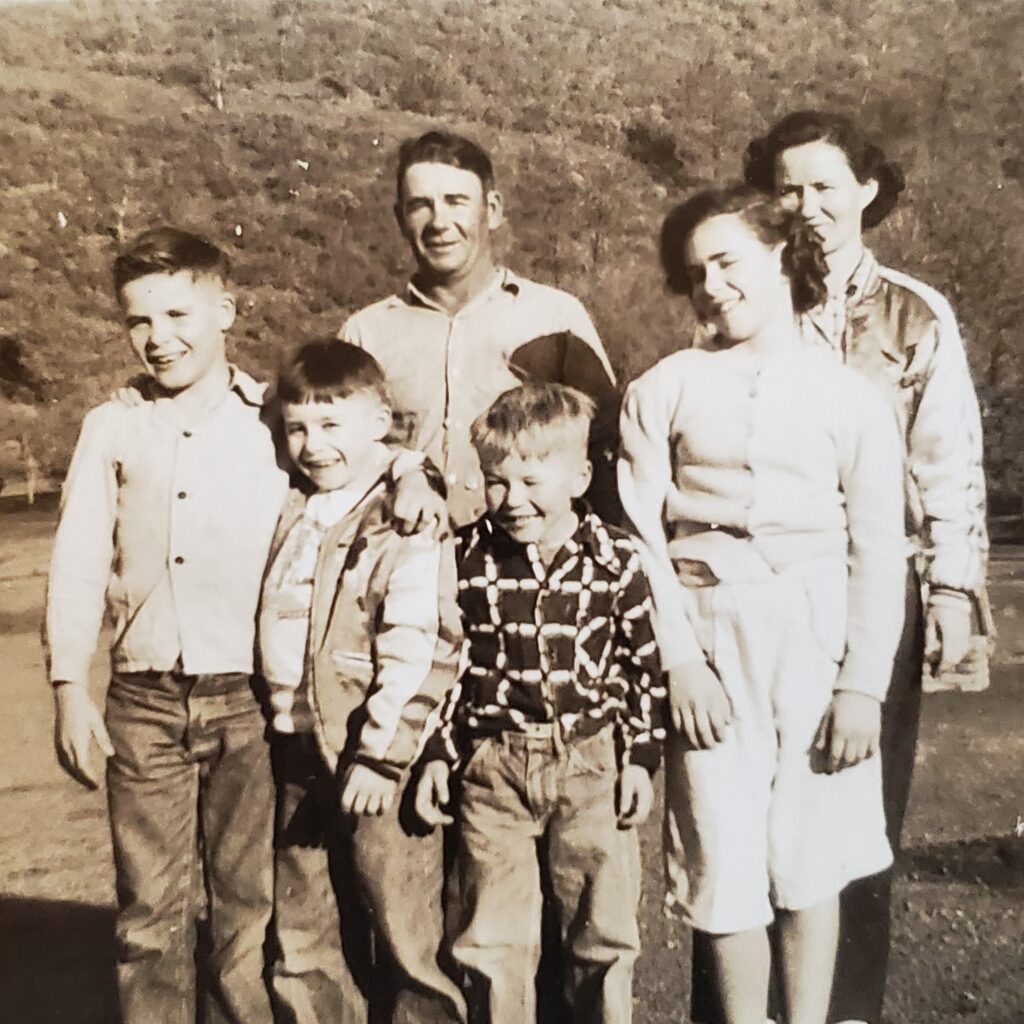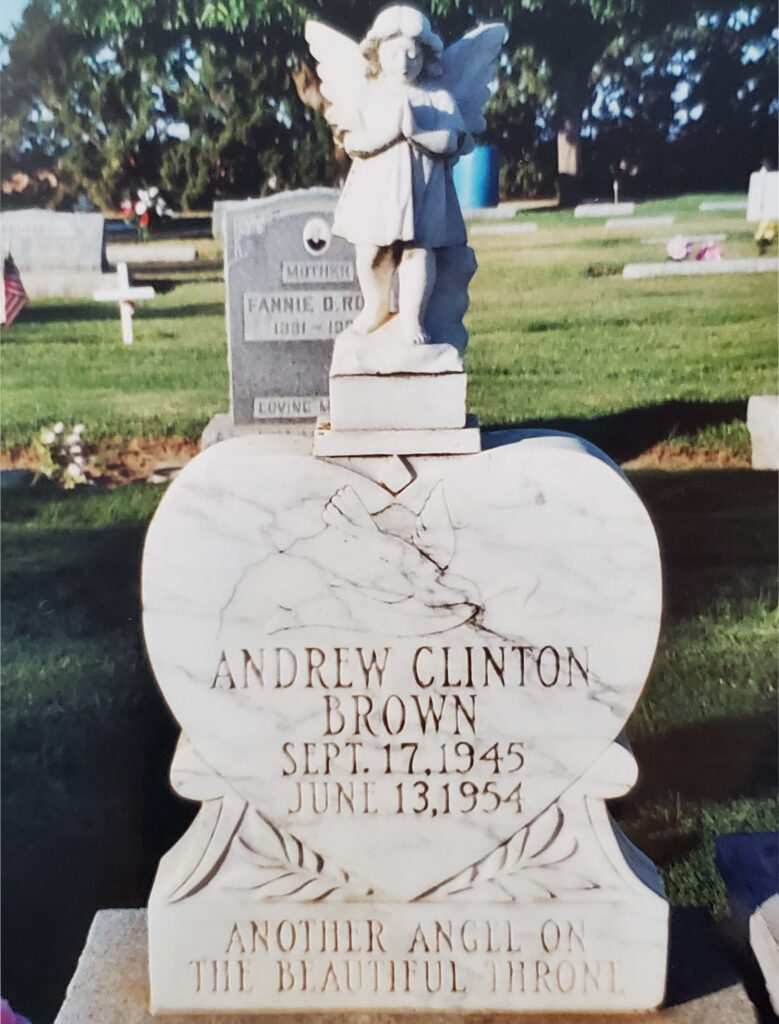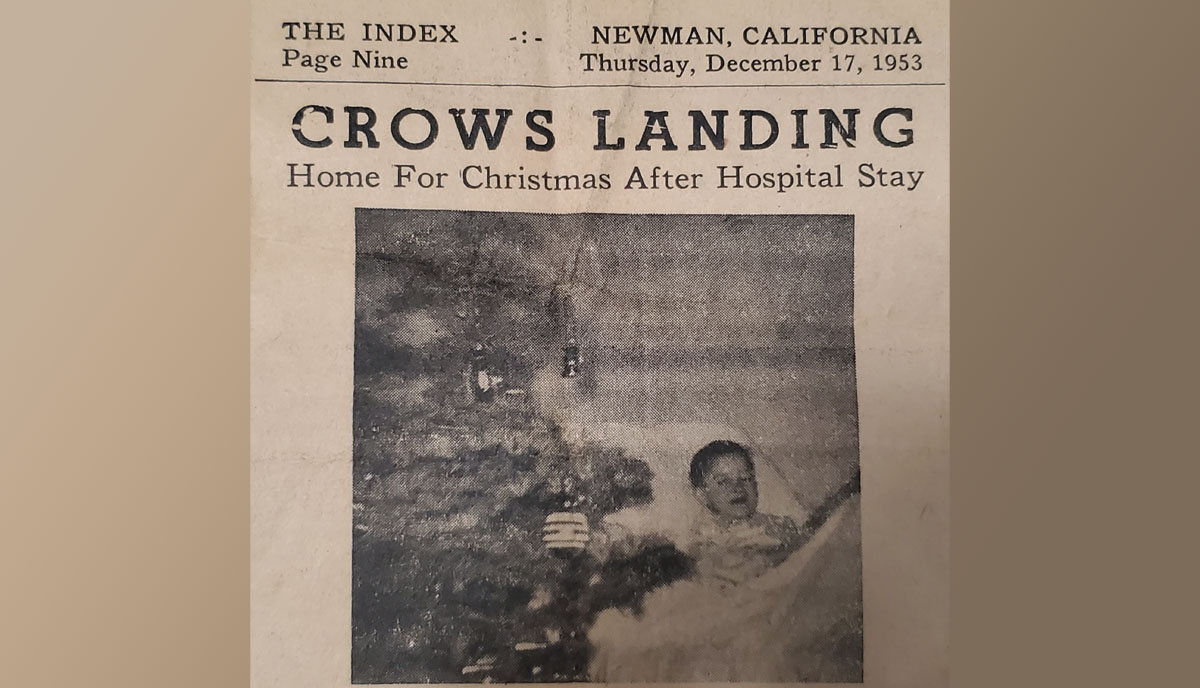Raising a family of six in the early 1950s as a farm hand in the little town of Crows Landing, California, was a backbreaking task. Sixteen-hour days at a very low wage made it difficult for Orshal Brown to provide for his family. But difficulty never prevented my grandfather from getting the job done. When I look back at his life, even some of my ‘difficult’ times, like surgical residency, seem like no big deal in comparison. Watching others navigate through seemingly unsurmountable difficulties often makes our troubles seem minor in comparison.

His wife, Virginia, and their four children, Wayna (my mother), Jereal, “Acey”, and Philbern, were grandpa’s number one priority. With so little income, and many mouths to feed, he frequently used his excellent hunting and fishing skills, which he learned from his father, to put food on the table.
I witnessed these skills firsthand when grandpa took me fishing and hunting many years later. He always seemed to get what he was after, and the freezer stayed stocked with fish. As my mother reflects on those early years she says, “When we needed food, dad would just go get some. He was very good at it.”
The nearby irrigation canals provided a year-round supply of catfish, and there were plenty of deer roaming the fields in their farming community. One of grandpa’s handy techniques was to keep a shotgun with him on the tractor while he was working a field, so when he saw a pheasant, he could bring it home for dinner. He would also gather vegetables and melons from nearby fields that had been passed over or damaged during harvest.
In the spring of 1952, a tough life became even more difficult when their middle son, Andrew, who everyone called “Acey,” noticed a lump in his abdomen. After seeing the doctor in Turlock, about 20 miles away, the family learned that Acey had a kidney tumor that needed to be removed. For a family without medical insurance, who barely scraped by under normal circumstances, a child in need of surgery was horrific news.
Having one child in the hospital 20 miles from home created additional difficulty for the family. Grandpa worked all day and couldn’t afford to miss any work even though he wanted to be with his son at the hospital. Having only one car made it hard for Grandpa to go to work, and Grandma to get to the hospital each day. So, Grandpa had the car so he could get to work, and Grandma stayed at the hospital, but who would take care of the other three kids?
Fortunately, friends and relatives stepped in to watch the other children. While Grandma stayed in the hospital with Acey, grandpa went to see them every day after washing up after work. All the while the medical bills continued to pile up.
To a family barely holding it together, Christmas adds extra weight to their already overburdened shoulders. The kids usually got one inexpensive Christmas present along with the clothes they would need for spring. But in the leanest years, the older kids didn’t get any presents at all.
In November of 1953, Acey required another surgery and was in the hospital for several weeks. It seemed like there would be no Christmas at all for the Brown family this year. How does a parent tell a sick eight-year-old boy there will be no Christmas presents?
Funny thing about living in a town with a population of only a few hundred; there are no secrets. Everyone in the community knew Acey would not live much longer, and this might be his last Christmas.
That’s when the Browns, a family in so much need, learned that miracles do happen at Christmas. Friends, relatives, neighbors, and the sailors at the nearby Naval Auxiliary Landing Field decided to throw Acey an unforgettable Christmas party when he came home from the hospital in mid-December. If this was to be Acey’s last Christmas, then it was going to be a Christmas to remember.
Acey’s only Christmas wish was to get a Hop-a-long Cassidy comic book. The whole community went on the hunt for this comic book for Acey, but unfortunately, it was not available at any of the local stores. Although the comic book eluded them, Acey received a large assortment of other hop-a-long Cassidy gifts. The first was a hop-a-long Cassidy watch that a friend gave him, which brought a smile to Acey’s tired lips for the first time since surgery. I remember seeing a picture of Acey dressed in his hop-a-long Cassidy gun belt, six shooters, chaps, and spurs which he loved so much.
The gifts simply poured in. For Acey’s homecoming, the Veterans of Foreign Wars post in Modesto provided a hospital bed for his comfort. One of his nurses gave him a dog. (I’m not sure if this was a gift or a burden, but what kid wouldn’t love a puppy for Christmas.) The local cub scouts gave him a sugar plumb tree. The General Electric appliance store donated a television. The Junior Boys and Girls of Bethel Tabernacle in Ceres gave him a book of quotes for inspiration. Lots of other toys, flowers and cards also rolled in. Acey made a scrap book of all the cards he received so he would always remember that fabulous day.
For the family, there were cash donations to help cover the medical bills that had piled high since Acey’s first operation. Although the donations didn’t cover all the bills, every little bit helped. The local car dealership decided not to repossess their car when grandpa fell behind on the payments. They graciously extended his loan to give him a break during this trying time.
Acey truly did have a Christmas to remember that year. His parents were quoted in a Newman newspaper article recapping the event saying, “There is just so much to tell so many, many people, people we don’t even know, whom we’d like to thank for bringing hope and happiness into the heart of our little boy.”
After Christmas, life returned to its usual routine for the Brown family, except for one very ill child and a pile of medical bills. Grandma’s older sister, Aunt Fannie Ziegler, came to live with them and provide help with the other children in those last few months when Acey was sick. Everyone felt her presence was a Godsend. Six months later, on June 13th , eight-year-old Andrew “Acey” Clinton Brown lost his battle with cancer. He was buried in the nearby Patterson cemetery.

After Acey was laid to rest, several people encouraged my grandfather to declare bankruptcy because the financial load from Acey’s medical bills was too much to bear. Orshal stood tall and declared he simply could not go through bankruptcy and stiff all those medical people, because “Those people took care of my boy.” It took about six more very lean years for him to pay off the remaining medical bills. The integrity of following through with your obligations was ingrained in me by my grandparents and their attitude of the importance of physicians likely contributed to my desire to become a surgeon.
This Christmas marks the 70th anniversary of Acey’s last Christmas. His sister and two brothers are alive today and still have fond memories of that celebration.
Time flies by faster than we realize. My best estimate is that I only have around 20 Christmas trees left to decorate. I highly recommend we all take a close look at how many Christmas trees we each have left, as it really makes the brevity of life hit home. Since none of us know when we will celebrate our final Christmas, maybe we should treat every Christmas like it is our last, starting with this Christmas. Share this story with your friends and family, then, maybe Acey’s last Christmas will change the lives of thousands of people who never knew him. People like me. I was born nine years after Acey’s last Christmas. Acey was the fun uncle I never knew, but wish I had.







Cory,
What an amazing story and a wonderful story for someone who left a legendary mark for his eight short years. Probably most of the children and adults in that community remember Acey and the Christmas.
You have become such a fine, fine writer and author. Thanks so much for sharing.
Wow. What a touching story and powerful reminder for us all. Thanks for sharing this.
That is a really touching story. I teared up when your grandpa took 6 years to pay the medical bills.
I have an aunt who died at age 17 a few years before I was born, so I can relate to the feeling of missing out on part of the family. She had all the makings of a favorite aunt. I never got to try her legendary brownies, and I’m sure I would have had some cousins my age from her.
After I finished my residency I revisited the family archives to understand her story from a medical perspective. It was a terrible tragedy made worse by the primitive approach to cancer care and palliative care available in the 1960’s. Thank God for all we have learned in the 60 years since her death.
I’m glad to hear the story moved you. Thanks for sharing your story.
Thanks so much for sharing this beautiful story. I admit to “Bah Humbugging” this year but my attitude has been changed.
Denise, Glad to hear you are getting in the spirit now.
This is a beautiful and inspiring story, thank you for sharing. 20 Christmas trees left–what a strong reminder.
Joan, You are welcome. Merry Christmas.